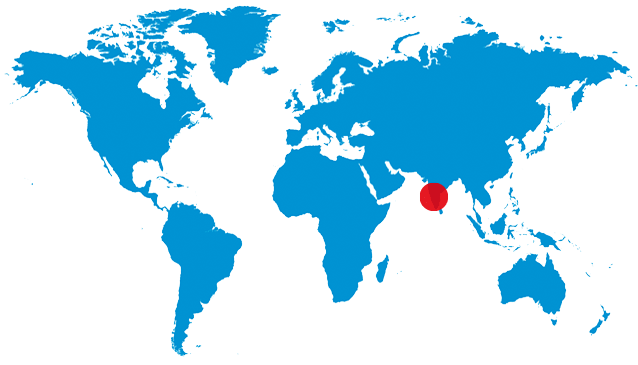
India: INNOQUA demo site in Beedi Workers Colony
The community consists of more than 150 households, with an average of five persons per household. The whole community will eventually be connected to mains sewerage, but in the meantime wastewater from half of the households is treated in a decentralised (DEWATS) system. The remainder is discharged without treatment.
Beneficiaries
The INNOQUA system will treat wastewater from 9 households and will benefit low-income people. The treated wastewater will irrigate a community garden that will provide fruit and vegetables to a nearby school, helping to improve the diet of local children who suffer from a high rate of malnutrition.


INNOQUA System
Design Capacity: 1.5m3/day
Source of Wastewater: Toilets and washing rooms
Specific Scientific Research Objectives:
To promote sustainability in the wastewater sector and to test new alternative sanitation systems
Configuration:
In India the system configuration includes a presettler, a lumbrifilter as the first and secondary treatment stage, a daphniafilter and biosolar purification via algae and sunlight as tertiary treatment stages, and a UV lamp for final disinfection as the quaternary treatment stage.



Location:
Beedi Workers Colony,
BSM Extension,
Kengeri Satellite Town,
Kommaghatta,
Bangalore 560060, India
For questions or to arrange a site visit, please contact:
Tatjana Schellenberg
Research Engineer at BORDA
Schellenberg@borda.org



